

At Medica, we provide world class infrastructure for treating Hypertension at the utmost depending on the diseases they are suffering from.
Hypertension is a common health problem affecting millions of people worldwide and, if left untreated, can lead to serious health complications such as heart disease, stroke, and kidney failure.
While hypertension may not cause noticeable symptoms in its early stages, it can be detected through regular blood pressure screenings.
Hypertension, also known as high blood pressure, is a medical condition in which the force of blood against the walls of the arteries is consistently too high.
A normal blood pressure reading is around 120/80 mmHg, while hypertension is defined as a sustained blood pressure reading of 140/90 mmHg or higher.
"Pulse pressure" refers to the more frequent situation in which the systolic pressure is higher than the diastolic pressure. Increased pulse pressure may be a sign of stiff arteries, which can be brought on by diseases including high blood pressure, atherosclerosis, or ageing.
Regular blood pressure monitoring is crucial. If you have any worries about your blood pressure or cardiovascular health, speak to our doctors at Medica Superspecialty Hospital, Kolkata.
The diastolic pressure cannot be greater than the systolic pressure due to physiological constraints.
To determine the severity of the hypertension and locate any underlying problems that might be causing it, our specialists will conduct a complete assessment.
A blood pressure cuff and other instruments will be used to keep a close eye on blood pressure to make sure it is under control.
Medica’s Hypertension treatment specialists may prescribe blood pressure medications to lower blood pressure, such as diuretics, Angiotensin Converting Enzyme ACE inhibitors, calcium channel blockers, or beta-blockers.
In some cases, Intravenous medications may be used to quickly lower blood pressure.
To control the patient's blood pressure and avoid problems, fluid management may be required.
Our doctors provide a proper balanced diet for hypertension patients with frequent exercise or yoga for hypertension and smoking awareness that can help in healthy lifestyle modifications.
Medica health care teams including neuro, cardio, kidney as well as cancer specialists keep an eye out for any heart attack, stroke, or renal failure-related complications of hypertension in the patient.
As we believe in complete care, follow-up sessions are carried out to check patient’s blood pressure and, if necessary, their treatments for high blood pressure hypertension are also modified.

Satisfied Patients

Health Sections

Kinds of Research

Award Winning
In many cases, hypertension (high blood pressure) does not cause noticeable symptoms, which is why it is often referred to as the "silent killer."
However, in some cases, people with hypertension may experience certain symptoms, which can include:
The only way to accurately diagnose hypertension for hypertension treatment in Kolkata is through regular blood pressure checks performed by our doctors.
It's recommended that adults have their blood pressure checked at least once a year, or more often if they have risk factors for hypertension or a history that increases blood pressure.
Here are some of the common risk factors associated with hypertension:

As we age, our risk of hypertension rises, with people over 60 years old being especially at risk.

Your chance of acquiring hypertension is higher if there is a history of the condition in your family.

Due to the increased stress it puts on the heart and blood vessels, being overweight or obese might raise the chance of developing hypertension.
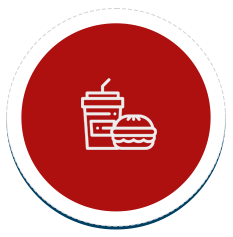
A diet high in sodium, saturated fats, and processed foods and deficient in fruits and vegetables raises the risk of hypertension.
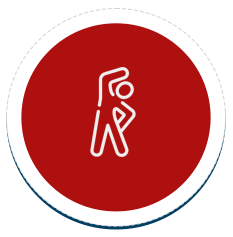
Regular exercise is essential to maintaining excellent heart health and is a key risk factor for hypertension.
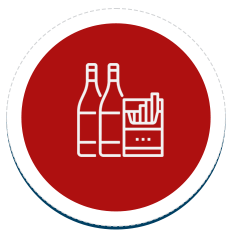
Using tobacco products and drinking too much alcohol can harm blood vessels and raise your chance of developing hypertension.

Long-term stress raises blood pressure, and people who encounter high amounts of stress may be at an increased risk of developing hypertension.
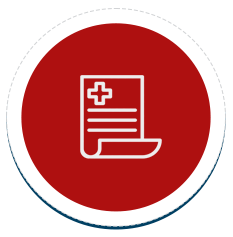
Hypertension is a risk factor for a number of ailments, including renal disease, diabetes, and sleep apnea.
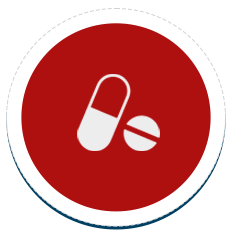
Some people's blood pressure levels can be raised by specific medications, including some birth control pills, decongestants, and pain relievers.
Utilising a blood pressure cuff, a stethoscope, or an electronic monitor, blood pressure is measured. Diastolic pressure (the bottom number) must regularly be at or above 80 mm Hg in order to identify high blood pressure. Systolic pressure (the top number) must continuously be at or above 130 mm Hg.
Patients may be asked to use a blood pressure cuff and monitor to check their blood pressure at home. This can assist in giving a longer-term, more accurate picture of their blood pressure.
Ambulatory blood pressure monitoring involves wearing a portable blood pressure monitor for a full day and night, which can give a more thorough picture of blood pressure patterns.
Blood tests may be used to detect any underlying medical disorders, such as diabetes or renal disease, that may be causing or contributing to hypertension.
An ECG can reveal any irregularities in the heart's rhythm and determine whether high blood pressure has harmed the heart in any way.
To look for any anomalies in the blood vessels or organs that may be causing hypertension, imaging tests like ultrasound, CT scans, or MRI scans may be done.
A physical exam might spot any hypertension symptoms or indicators, like swollen ankles, shortness of breath, or hazy vision.
To prevent hypertension, maintain a healthy lifestyle that includes frequent exercise, a balanced diet, and stress management, connect to the hypertension specialist in Kolkata who will provide you with a hypertension care plan.
While the majority of people's causes of high blood pressure are still unknown, other factors such as inactivity, a poor diet, obesity, advanced age, and genetics can all have an impact.
A measurement of less than 120/80 mm Hg is normally regarded as normal blood pressure. You can be given a hypertension diagnosis if your blood pressure readings are regularly at or higher than 130/80 mm Hg.
Our doctor might advise additional tests or observation in some circumstances in order to confirm the diagnosis.
Call our doctor right away if you suffer any symptoms, including headaches, chest pain, or shortness of breath.
One hypertensive parent increases a person's risk of having hypertension by 25%. If both parents have high blood pressure, this likelihood rises to 50%.
Overweight or obese people are much more likely to have hypertension. Blood pressure often rises as a person puts on weight, while it typically falls when they lose weight. One of the most crucial components of high blood pressure treatment is weight control. Many individuals may also be able to stop taking medication by just losing weight.
Blood pressure should be monitored at least once a year for the majority of people.
If you have a history of high blood pressure or certain risk factors, our doctors could advise more frequent examinations.